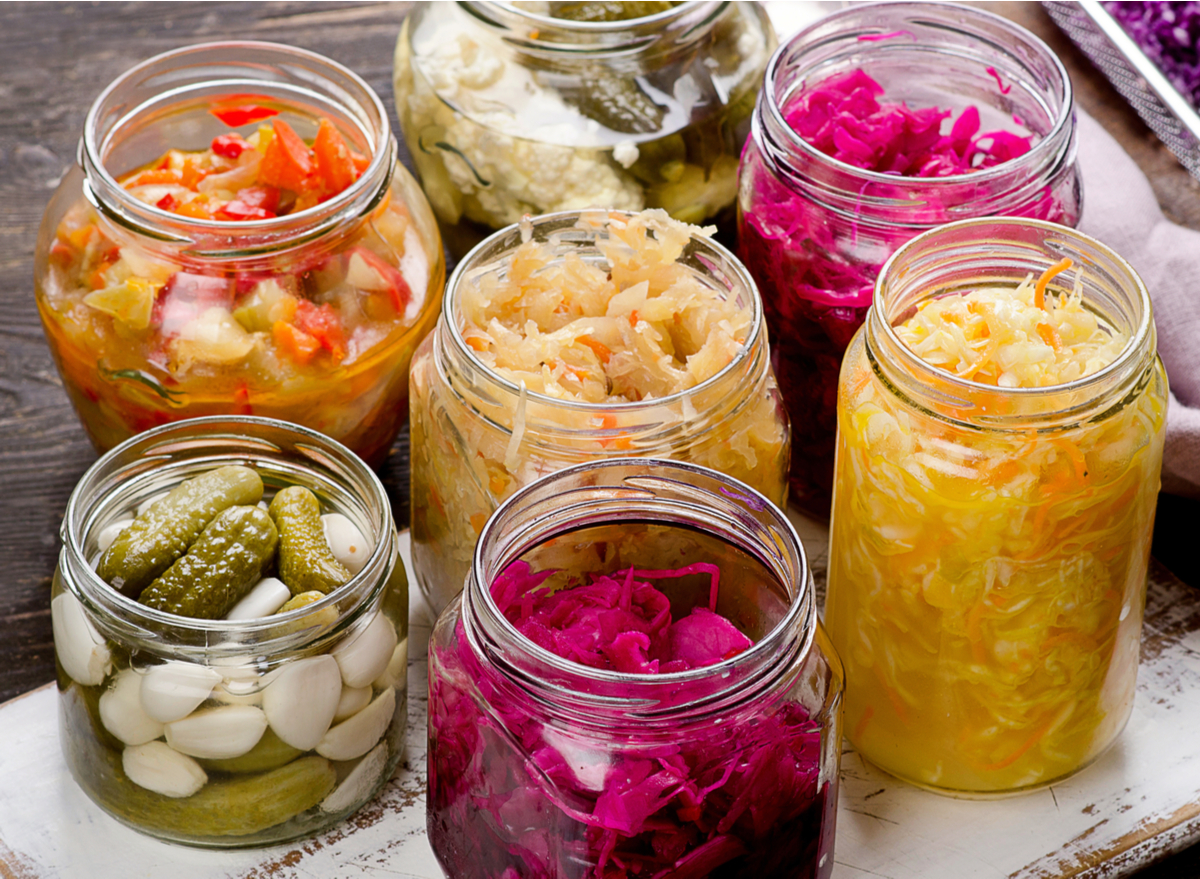Eating These ‘Psychobiotic’ Foods Can Lower Stress and Improve Sleep, New Study Suggests

You might be aware of the fact that there are foods that can ruin your sleep. There are also foods that you should avoid when you’re stressed. On the other hand, a new study has found that eating a “psychobiotic diet” may not only lower stress but may also help you get a better night’s sleep.
The October 2022 study that was published in Molecular Psychiatry involved 45 adults between the ages of 18 and 59 years old who normally consumed a diet that was low in fiber. While all participants met with a registered dietitian for counseling, researchers from APC Microbiome Ireland at the University College Cork also split the participants into two groups who were instructed to eat different diets. The first switched to a diet that followed the food pyramid. The second group was asked to eat a “psychobiotic diet” which includes a large amount of prebiotic and fermented foods. Dr. John Cryan, the lead author of this study, told Medical News Today that his research team coined the phrase “psychobiotic diet” to refer to “microbiota-targeted interventions that support mental health.”
The second group was specifically instructed to stick to a daily menu that included 2 to 3 servings of fermented foods (such as sauerkraut, kefir, or kombucha), 5 to 8 servings of grains, and 6 to 8 servings of fruits and vegetables that are rich in prebiotic fibers (including apples, bananas, cabbage, leeks, and onions). They were also asked to eat 3 to 4 servings of legumes each week.
The resulting findings showed that while both groups noted an improvement in their sleep, the participants who had been eating a psychobiotic diet also experienced a decrease in the amount and intensity of the stress they may have been under at the time. Beyond that, the level of perceived stress went further down the more closely a participant followed the psychobiotic diet.
“The study provides promising benefits of what a psychobiotic diet can do in relation to digestion and stress,” Catherine Gervacio, RD, a registered dietitian and contributor at Living Fit, tells Eat This, Not That! “Stress affects digestive health and can hinder the efficient absorption of nutrients needed to combat stress and other potential risk associated with it. Further study is needed, but it does give further evidence of how big diet and nutrition is in managing stress and sleep.”
While Gervacio says that “this type of diet still walks through the path of healthy eating and abides by the recommended intake of food,” she notes that “people need to know, however, that all diets have to be thoroughly reviewed first if a person can better benefit from it—or there may be other diets that fit their health data and fitness goals.”
Gervacio offers an example, pointing out that “a person who needs a low histamine diet may not benefit from psychobiotic food and can do well with Mediterranean instead.” That’s why she says that “it is best to talk to an expert before starting a diet.”
Beyond that, Gervacio adds, “Further studies are yet to be conducted in order to prove that probiotics do contribute significantly to stress and sleep. Until then, everyone should focus on healthy eating, and practice ways to combat stress and sleep.”








